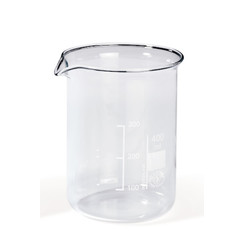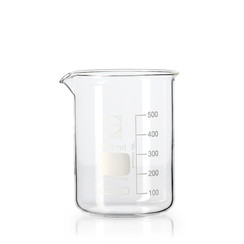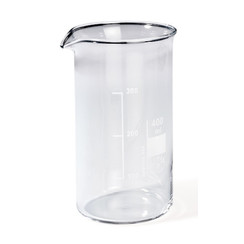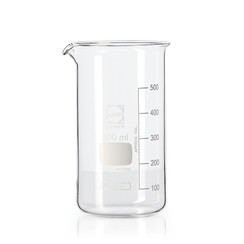You have no items in your shopping cart
Glass beakers
A beaker is a simple glass device for various purposes in (mostly scientific) laboratories. It is conceived as a cylindrical cup with a turned-over rim at the top
and usually a spout. A rough volume scale is usually printed on the side. Besides the test tube and the Erlenmeyer flask, the beaker is one of the most commonly used glass vessels in the laboratory. The beaker is used for a variety of tasks that require a simple glass vessel, such as collecting or mixing liquids or preparing simple solutions.
It is inexpensive, is easy to fill thanks to the large opening and allows to stir the contents with, for example, a glass rod. The transparent borosilicate glass usually used as a material is resistant to heat and most chemicals, so that the cups made from it are also suitable as simple reaction vessels and for heating. Cups made of polypropylene are not heat resistant and also less resistant to chemicals. Beakers commonly used in the chemistry laboratory Beakers in high and low shape With the conventional beaker ("wide/wide shape") the ratio between height and diameter is usually around 1.4. This regular version with a spout is sometimes referred to as "Griffin Shape"
(especially in the Anglophone world). For "tall shape" cups, the height usually corresponds to about twice the diameter. This shape is sometimes called the "Berzelius cup". A beaker differs from a bottle in that it has a straight side wall. Beakers are available in sizes from 5 ml to 10,000 ml
You can buy these beakers at Laboratory discounter with a fast delivery and for a friendly price.





